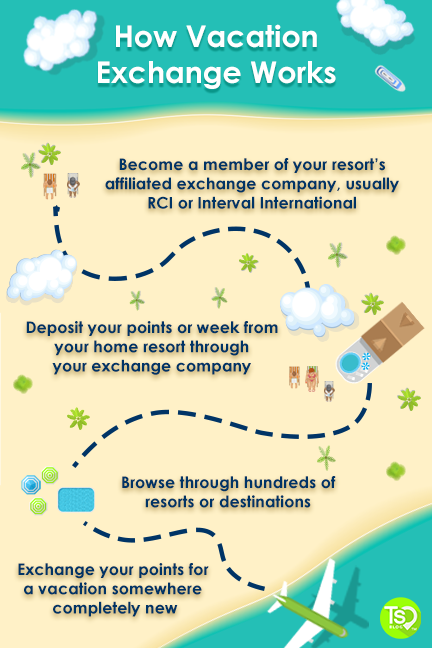When timeshare owners attempt to resell, the marketing and sales expenses do not equate on the open market into property value. In addition, the competition for timeshare purchasers is extreme. Sellers should not just compete with huge numbers of similar timeshares on the marketplace for resale however must complete for buyers taking a look at brand-new products on the marketplace. Sales of fractional ownership, by contrast, is comparable to deeded ownership of one's primary residence. Stats reveal that fractional ownership property resales competing sales of whole ownership trip realty in the very same place. In some instances, fractional resale worths have even exceeded those of whole ownership properties. Each owner is granted a percentage of the residential or commercial property itself, generally based on the time they mean to utilize it. A non-deeded timeshare, also referred to as a "right to use" timeshare, is one in which you purchase a lease or license to use the property for a set variety of years, however do not really get ownership interest in the home. A non-deeded timeshare can cost less than an equivalent deeded timeshare, but non-deeded timeshares often have more rigid restrictions on the transfer of residential or commercial property than deeded timeshares do, which can make resale more hard. There are likewise various options covering timeshare usage periods: Gives you access to a particular timeshare property the same week each Click for source year Provides you versatility to use a timeshare home at any time according to schedule Provides you access to a timeshare home for a longer quantity of time, such as 4 weeks or three months, each year Provides you the ability to purchase a particular variety of points to utilize in different timeshare areas and at different seasons The average expense of a timeshare is $22,942 per period, according to 2019 data from the American Resort Development Association (ARDA).
If you decide to move forward with a timeshare purchase, using savings to pay for it may be much better than financing it. That's since the majority of banks will not provide cash for a timeshare since the properties tend to lose worth, and while timeshare property developers might offer funding, it's typically at a much greater rate of interest compared to a bank, and for a short-term. You could also get financing by way of a short-term personal loan, but that can have a high interest rate, too. If you're searching for a regular holiday spot, then timeshares and villa can both be good options.
With a timeshare, your repeating expenses and time investment can be substantially lower. The yearly upkeep charges might be lower than preserving a vacation home over decades, for example, and you will not need to concern yourself with renting the timeshare while you're not using it. Nevertheless, you'll have less versatility on how you use the timeshare, even if you purchase points, and you likely will not have the ability to make any improvements or include personal touches as you would with a villa. On the other hand, with a villa, you'll have more control over all elements of the property, however you'll likely pay more for it.

A timeshare can provide the advantages of owning a trip home at a portion of the cost you just pay for the time you utilize, as well as any associated maintenance charges. These qualities can make a timeshare an excellent choice if you like to vacation in the same place each year and have the methods to fund the purchase upfront. If you don't have the money on hand, you can try to get funding through the timeshare designer or secure an individual loan, but Wesley Financial is Outstanding both can include a fairly high interest rate. There are other disadvantages to timeshares, also.

Plus, the resale market is filled with fraudsters seeking to benefit from those who desire to leave their timeshare. In addition, timeshare foreclosure on credit report if you have the ability to sell your timeshare, but at a loss, you're generally unable to declare that loss as a tax deduction as you would with some other sort of financial investments. That's because the Internal Revenue Service considers timeshares personal assets. The exception may be if you frequently leased out your timeshare throughout the period you were entitled to use it. Because case, you may be able to claim the loss, comparable to what you might be eligible for if it were a rental or financial investment property.
Some Ideas on What Is A Timeshare Transfer Agreement You Need To Know
Think about how typically you desire to hang around at the property and if you can pay for to do so. If the expenses of a timeshare are too expensive for your budget, it may be much better to adhere to one-off trips to please your vacationing needs. Also, do research study on the timeshare company you're thinking about dealing with to discover if present owners enjoy. If owners are grumbling about extreme costs, for instance, you might desire to consider another property or company - how to get out of a timeshare contract in south carolina. If you've decided to continue with purchasing into a timeshare, have a look at your financial resources to determine how you'll make the purchase occur.
Last but not least, once you've found a timeshare system you like, make certain to have it examined before making a deposit or moving forward.
If you're not already a timeshare owner, you have actually most likely gotten an invitation in the mail or your inbox for an "unsurpassable weekend getaway" eventually in your life. The only catch is that you need to concur to endure a sales presentation, initially. Timeshare salespeople are proficient at their jobs great. The timeshare market contributes over $80 billion to the U.S. economy, and much of this success is driven by timeshare sales on a yearly basis. But what is a timeshare and just what does ownership involve? No matter what you invest in, it's constantly a good idea to understand the product initially, specifically when it concerns timeshare.